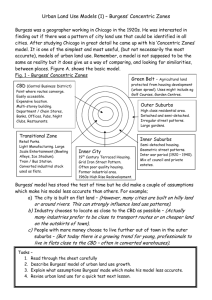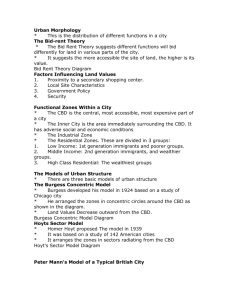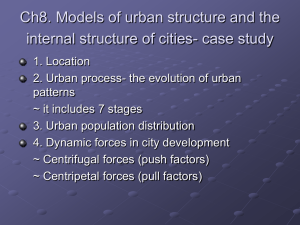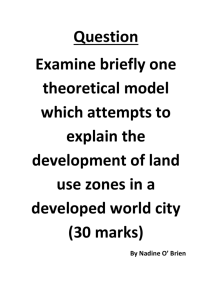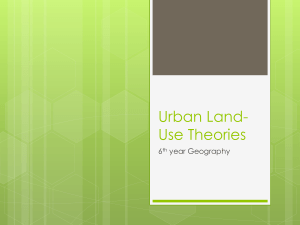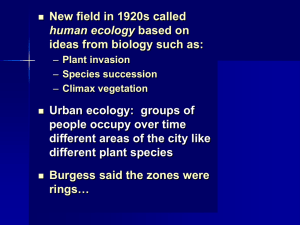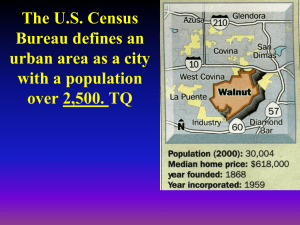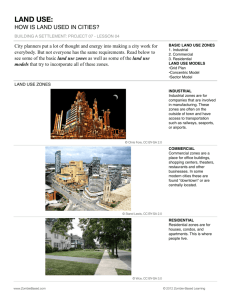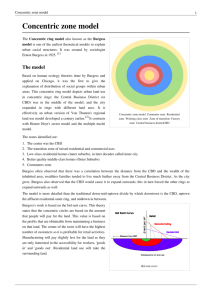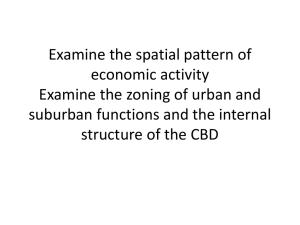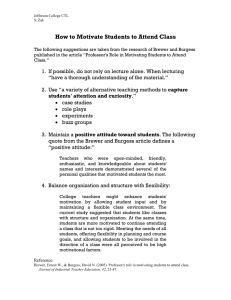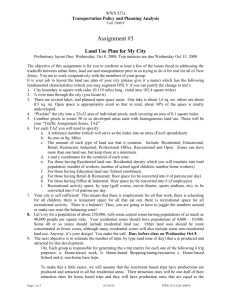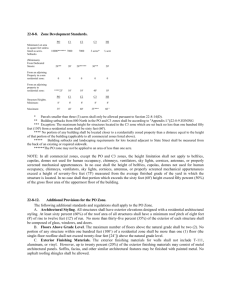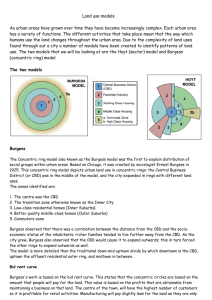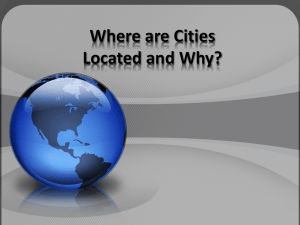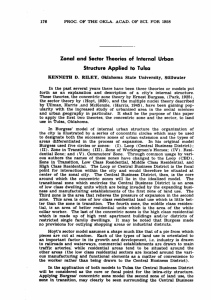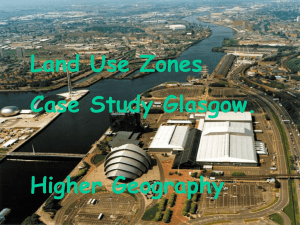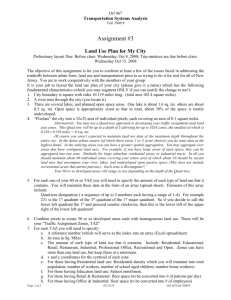URBAN LANDUSE MODELS - Clydebank High School
advertisement
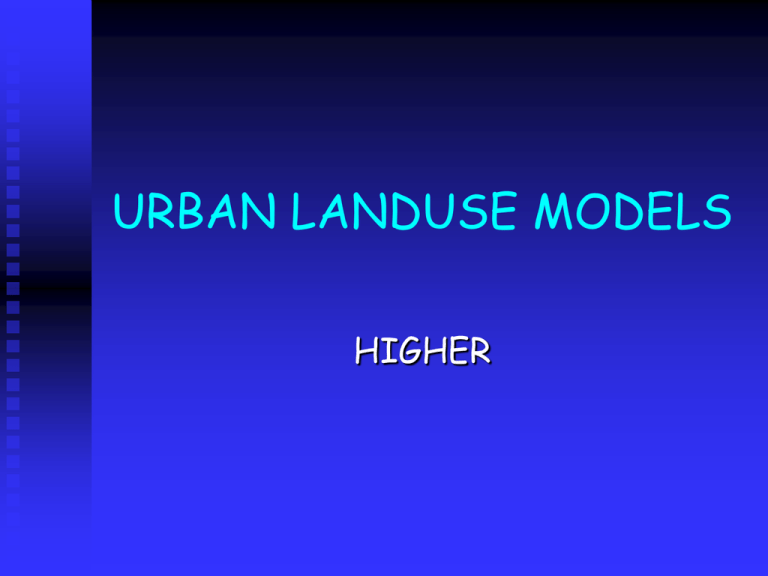
URBAN LANDUSE MODELS HIGHER Models of Urban Structure A model is a simplified version of what occurs in real life. Urban models show common characteristics of cities. Urban Models are based on assumptions. The Burgess Land use Model – Concentric Zones 1924 CBD Major shops and Offices The most accessible point of the city The original core of the city Very low residential population. Zone of transition Made up of old housing and factories. Stages of deterioration and redevelopment. Areas of low class housing Terraced or tenements Over crowded Close to industry Medium class residential Housing built during inter war period. Population density is lower than previous zone. High Class Residential or Modern Suburbia Houses mainly semi detached or detached Well planned Lots of open space Good transport links Lower population density Burgess Model Assumptions City built on a flat surface. Transport easy in all directions. Land value highest in city centre Oldest buildings close to city centre Poorer classes have to live near work and city centre. But can this really happen? Criticisms. Zones are never that clearly defined. Zones usually have a mix of land uses Cities rarely on large flat plains. No edge of city developments. Oldest housing not always found in centre. The Sector Model Based on Transport Routes. Basic Assumptions Wealthy people choose to live near transport links. They can afford cars so can live further from industry. Similar land uses attract similar land uses.This means certain functions are located in certain areas. But certain functions also repel each other. Criticisms Areas of low cost housing do not occur beside main roads as predicted. Assumes no planning controls. Does not take account of suburbs. The Multiple Nuclei Model Assumptions The central business district will often be found near the original retail area of the city. Warehousing and light industrial areas will develop adjacent to the CBD and along transport links such as railways and roads. Heavy industry will locate on the outskirts of towns or where the outskirts were when the development took place, since growth of the urban area may have overrun this area by now. Residential areas will be found in the remaining space. Criticisms The model is not based on any particular city It has a very weak spatial rule – in that it doesn’t provide a clear picture. Manns Compromise Model Assumptions Elements of both Burgess and Hoyt models. SW wind blows smoke and pollution towards East. Wealthy choose to live in pleasant unpolluted areas. Criticisms Does not include inner city renewal. Based on limited study of only three cities – not entirely accurate.
